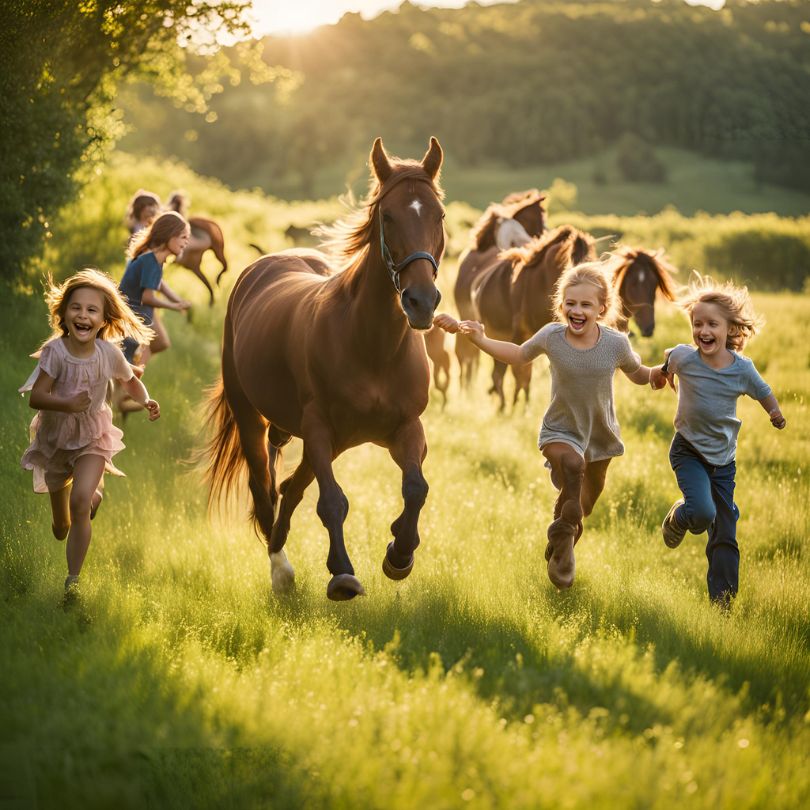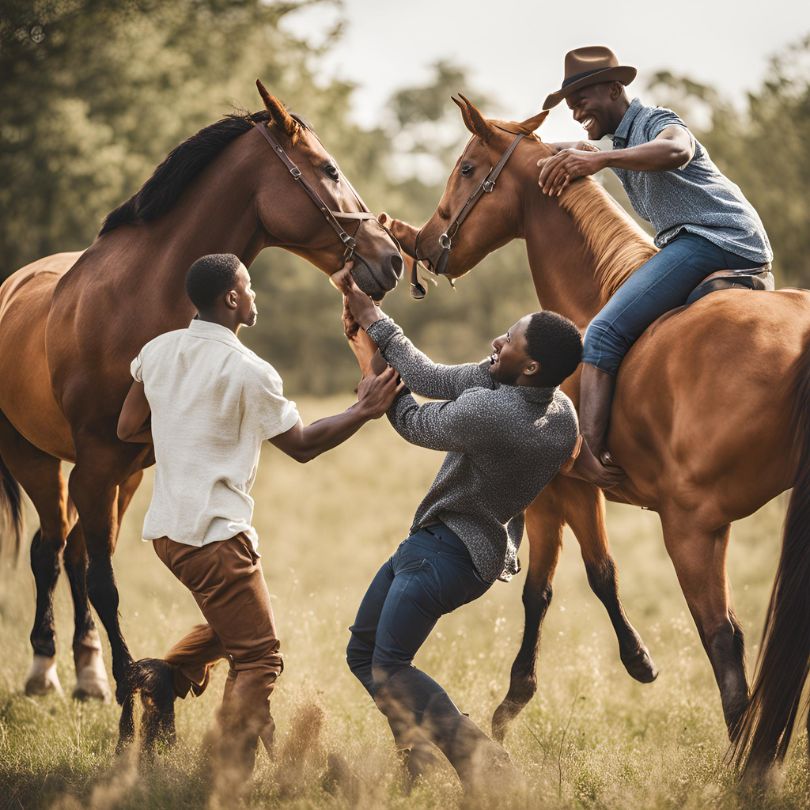Raising horses is a rewarding but challenging experience, especially for beginners. With their large size, unique needs, and complex behaviors, horses require a specific approach to ensure their health, happiness, and safety.
Many new horse owners make common mistakes that can lead to difficulties in horse care, sometimes impacting the well-being of the animal. Here’s a comprehensive guide on what to avoid when you’re starting to raise horses.
1. Choosing the Wrong Horse
Many beginners select a horse based on looks, size, or price without considering temperament, training, or suitability for their experience level.
Avoid choosing a horse impulsively. Instead, look for a horse that matches your riding experience and future goals. Selecting a young, untrained, or high-spirited horse may lead to challenges, as these animals often require more advanced handling skills. For beginners, it’s best to choose a well-trained, calm, and patient horse that can help you learn the basics without excessive risk.
Tip: Consult with an experienced trainer or equestrian friend when selecting your first horse to avoid potential mismatch issues.
2. Skipping Professional Training and Guidance
Thinking you can learn everything on your own is a common mistake that can lead to costly and even dangerous situations.
Horses are powerful animals, and it’s essential to understand how to handle, ride, and care for them safely. Beginners often underestimate the value of professional guidance. Skipping training sessions with a qualified instructor or failing to seek advice on stable management can lead to issues in horse handling and care.
Tip: Invest in lessons with a certified trainer, and take the time to learn basic horse care practices, such as grooming, feeding, and stable management.

3. Inadequate Shelter and Fencing
Proper shelter and secure fencing are essential to keep horses safe and healthy.
Horses need a dry, comfortable shelter to protect them from extreme weather conditions. Inadequate shelter may expose them to health issues such as respiratory problems in winter and heat stress in summer. Additionally, using weak or poorly designed fencing can lead to injuries or even escape, as horses are strong and sometimes test boundaries.
Tip: Ensure your pasture or paddock has sturdy fencing and a well-constructed shelter, like a barn or three-sided run-in shed, to protect against wind, rain, and extreme temperatures.
4. Neglecting Proper Diet and Nutrition
One of the biggest mistakes new horse owners make is providing an improper diet.
Horses require a balanced diet rich in fiber from grass or hay. Overfeeding grain or treats can lead to health problems, such as colic, founder, and obesity. Additionally, horses need constant access to clean, fresh water to stay hydrated. Avoid giving your horse unapproved foods and consult a vet or equine nutritionist to establish a suitable feeding plan.
Tip: Stick to a diet primarily composed of hay or pasture, supplementing with grain only when necessary and based on veterinary recommendations.
5. Not Regularly Monitoring Health and Wellness
Skipping regular health checks can lead to the development of serious health issues.
Horses require routine veterinary care, including vaccinations, dental work, and hoof care. Some beginners underestimate the importance of regular health checkups or delay calling the vet until a problem becomes serious. Neglecting preventive care and hoof trimming can lead to lameness, infections, and other health issues.
Tip: Schedule regular visits with a veterinarian and farrier, and keep an eye on your horse’s body condition, appetite, and behavior to catch early signs of illness.
6. Ignoring Hoof Care
“No hoof, no horse” is a common saying in the equine world, emphasizing the importance of hoof health.
Horses’ hooves grow continuously and need regular trimming, especially if the horse isn’t naturally wearing them down. Neglecting hoof care can lead to lameness, pain, and even long-term deformities. Many beginners underestimate how crucial regular hoof maintenance is for a horse’s overall health.
Tip: Set up a regular schedule with a farrier to trim and check your horse’s hooves, typically every 6-8 weeks, depending on the horse’s activity level and environment.

7. Overworking or Underworking the Horse
Finding the right balance between exercise and rest is essential for a horse’s physical and mental health.
Horses are active animals that need regular exercise to stay healthy. However, beginners may unknowingly overwork a new horse, especially if it’s not used to intense physical activity. Conversely, some owners underwork their horse, which can lead to weight gain, stiffness, and boredom-related behaviors.
Tip: Create a balanced exercise routine that matches your horse’s fitness level, age, and breed. Include a mix of groundwork, riding, and rest days to maintain their physical and mental well-being.
8. Inconsistent Training and Handling
Inconsistency in training can lead to confusion and unwanted behaviors in horses.
Horses thrive on routines and clear communication. Beginner mistakes often include inconsistent handling, changing cues, or rewarding bad behavior. Without consistent training, horses may become confused, disobedient, or even develop bad habits.
Tip: Work with a trainer to establish a consistent training plan, focusing on positive reinforcement. Regularly practice commands and cues to ensure the horse understands what is expected.
9. Failing to Understand Horse Psychology and Body Language
Horses communicate through subtle body language, and misunderstanding these signals can lead to safety risks.
Horses are prey animals and have a natural instinct to flee when they feel threatened. Beginners who fail to understand horse body language may unknowingly provoke fear or aggression. For instance, walking too quickly behind a horse or ignoring pinned ears can result in kicks or bites.
Tip: Take the time to learn about horse psychology, body language, and the warning signs of discomfort or agitation. Building trust and respect with your horse is key to safe and enjoyable handling.
10. Neglecting Social Needs
Horses are social animals and thrive in the company of other horses.
Keeping a horse isolated can lead to loneliness, anxiety, and even behavioral issues. Horses need companionship to fulfill their social needs, which helps to reduce stress and promote a healthier lifestyle.
Tip: If possible, allow your horse to have pasture mates. If you can’t keep multiple horses, consider providing time with other horses during riding sessions or visits to a local stable to promote social interaction.
11. Underestimating the Financial Commitment
Raising a horse involves significant ongoing costs that extend beyond the initial purchase price.
Beginners often underestimate the financial demands of horse ownership. Besides food and shelter, you’ll need to budget for veterinary care, farrier services, equipment, and emergency expenses. Skimping on any of these can lead to bigger issues down the line.
Tip: Create a monthly budget for horse care, considering all essential expenses. Set aside funds for emergencies to avoid being caught off guard by unexpected costs.
Raising horses can be a deeply rewarding experience, but it comes with responsibilities that can challenge even the most dedicated beginners. By avoiding these common mistakes—such as choosing the wrong horse, neglecting health care, and misunderstanding horse psychology—you can ensure a happier, healthier start for you and your equine companion. Remember, learning and improving as a horse owner takes time, patience, and dedication, but with the right approach, you can build a strong bond and enjoy years of success in horse care.
With these guidelines, new horse owners can make informed decisions and avoid common pitfalls, setting themselves up for a rewarding journey into horse care.

